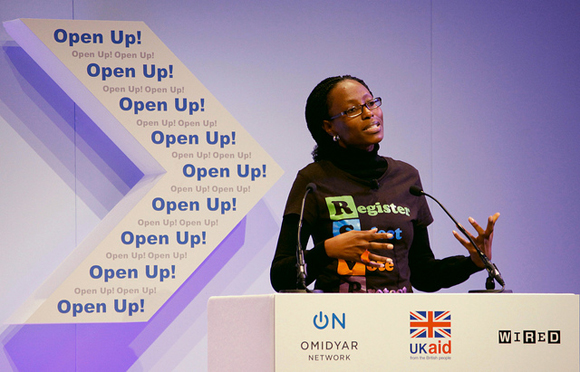Happy New Year to all my DFID friends and blog readers!
Traditionally, the new year is a time for making new resolutions. Go on that new diet, start that exercise regime, enrol in that evening class you’ve been eyeing for a few months now. We’ve all been here before and January always starts with the best of intentions.
My main New Year’s resolution is to get my finances in order – economists are notoriously bad at looking after their own money and I’m no exception! Apparently, trying to lose weight is the most popular New Year’s resolution amongst Americans. Similar surveys may find the same in other countries.
But New Year is not just a time for individuals to put their best foot forward. It’s also a time for countries and organisations to shape up. While weight loss might be popular for individuals, for countries and organisations working in development, one of the most popular 2013 resolutions is likely to be to increase transparency.

The sad thing is that quite often, January best intentions end up fizzling out by May. There’s a risk that, just like many of our individual resolutions, pledges on transparency could slip.
There are a few great articles with tips for keeping New Year’s resolutions alive. Like this one from the Cabinet Office Behavioural Insights Team with 5 tips, or this from the Huffington Post with 10 tips. I won’t go through all of them, but I did see some really useful parallels for countries or organisations interested in transparency.
Take Tips 3-6 from the HuffPo article. These were especially relevant for countries or organisations taking first steps towards transparency. They were about visualising goals, formalising and declaring them – ideally in public – and breaking them down into quantitative sub-goals and a plan, then tracking progress against that plan. Economist Dean Karlan calls this creating a “commitment contract”, and cites several examples about how it can be used in development. It’s exactly what the common transparency standard has been created to help organisations do. Countries or organisations from all over the world – be that UK, Brazil or Ghana – can focus on achieving the standard, create their own specific timetable for how they will get there, and publish it so that they can track their own progress and everyone can hold them to their own goals.
There were also tips relevant to countries and organisations already doing pretty well on transparency, such as DFID. Doing well is dangerous, as it’s easy to become complacent. If one individual in DFID or another organisation is not transparent it may not matter too much, yet many individuals being opaque can add up to significant failure. How to avoid this? It’s hard to coerce staff or punish them for not keeping up. So the best alternative is to keep reminding staff of their goals, focus on the great things that will happen when these goals are achieved, find ways to actively lock-in gains, and celebrate success. These are all crucial to avoid sliding back.
We will need to do this in DFID. For example, in 2012, we were at the top of the Publish What You Fund Aid Transparency Index. This year, another organisation might get there. Whatever happens, the competition will provide a good incentive to DFID to keep progressing. Hence, we are planning to do more work to code aid data geographically so that people can see and show data that’s relevant to a location anywhere in the world, and publish the data based on developing countries’ budget definitions rather than what’s relevant in the UK. Success in these will mean people in developing countries can better understand and illustrate through tools like infographics what UK aid is doing and have greater say over it. Success under the Aid Transparency Challenge which we launched at the end of 2012 will mean people can add up and understand how much UK aid, different non-governmental organisations or other organisations are administering. The Center for Global Development think-tank called this work a “game-changer”.
New Year’s resolutions are never easy to maintain, and I doubt that 2013 will be any easier. But the good news is that whether we’re new starters or we’ve already been making progress, there are some simple tips we can use to maintain our best intentions. Let’s use them all, for transparency’s sake!
